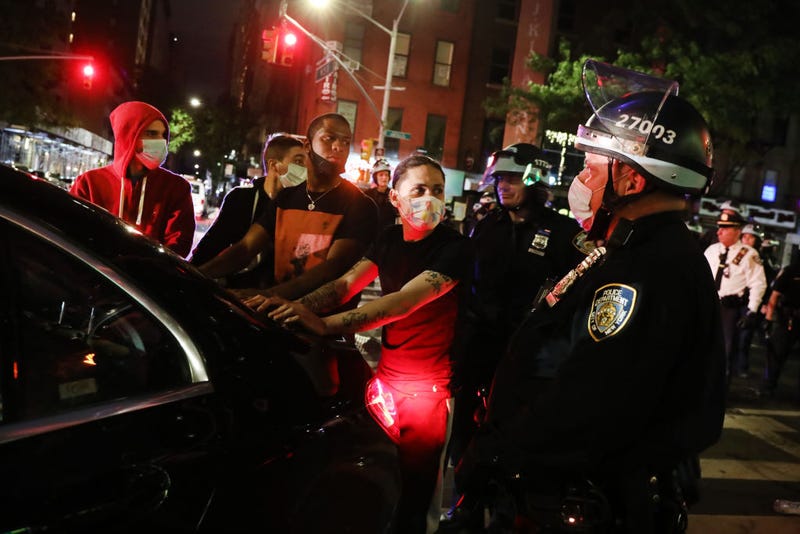
This week marked the third anniversary of the killing of George Floyd, an unarmed Black man, at the hands of Derek Chauvin, a white man who was a Minneapolis police officer at the time.
Even as Floyd’s murder heightened awareness about police brutality in the U.S., law enforcement still injured protestors who gathered in 2020 for racial justice in the wake of his death. Now, 19 cities have agreed to pay more than $80 million in settlements to those injured, reports Gloria Oladipo of The Guardian.
Experts believe this figure is “unprecedented and will rise further as many lawsuits are still playing out,” said Oladipo. She said police violence against protestors included teargassing them and shooting them with projectiles.
“You don’t recover from something like this. That’s not a thing you do,” said Linda Tirado, a journalist who was partially blinded after being fired on by the police while covering the protests in Minneapolis.
“We were never, like, cussing or yelling in their face or anything. It was all just peaceful,” said Anthony Evans, who was shot in the jaw in Austin, Texas, during a Black Lives Matter protest. Police used “so-called less-than-lethal ammunition,” to shoot him, per Oladipo’s report.
Oladipo recently joined Audacy’s podcast “It’s Generational” – listen here:
According to data from the University of Illinois at Chicago, more than 600 people are killed by law enforcement in the U.S. annually. Additionally, an estimated 250,000 civilian injuries are caused by law enforcement officers each year. While Black males comprise just 6.1% of the U.S. population, they account for nearly a quarter of people killed by law enforcement.
George Floyd was not the first unarmed Black man to be killed by police. However, his story spread fast because Pulitzer Prize winner Darnella Frazier, a then 17-year-old witness, captured the tragic event on video.
Carol Sobel, a civil rights attorney in southern California, said the record number of settlements can be traced to Floyd’s murder.
“That’s a consequence of the fact that the outrage of the killing of George Floyd was national and was represented nationally in a way that has never occurred before,” she said.
“We had millions of people flowing into the street to stand against racist police violence. And in city after city and small town after small town, law enforcement was deployed to violently repress demonstrators,” said Mara Verheyden-Hilliard, executive director of the Center for Protest Law and Litigation, according to The Guardian.
Cities included in the settlements so far include: New York City, Philadelphia, Denver, Atlanta, Los Angeles, Oakland, Milwaukee, Kansas City, and Portland, Ore. More are also being sued, said Oladipo.


